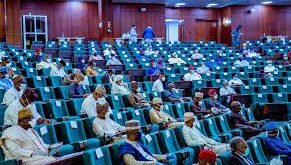The United States defended President Donald Trump’s decision to impose a 14% rate on Nigerian exports, citing commercial barriers created by the restrictions of Nigeria on 25 categories of American goods.
The President of the United States, Donald Trump, last Wednesday, announced a 10 % rate on imports from all countries, with further withdrawals that aim at about 60 nations have considered the “worst transgressors” in commercial imbalance.
Citing economic security problems, the White House described the decision as an national emergency response to what he called “unjust treatment of the United States in global trade”. He justified rates as a corrective measure against countries engaged in the manipulation of the currency, excessive value to added (VAT) and restrictive commercial policies that disadvantage American companies.
Nigeria has blocked 25 categories of products from the entrance of its borders, a move that the United States government has said that it is damaging American exporters and violating the basic rules of global trade.
By defending its position on the 14% rate on Nigerian exports, the United States government said that the ban on 25 products limits access to the US market, in particular in agriculture, pharmaceutical products and consumer goods, leading to significant losses for American companies.
“Nigeria maintains an average rate of 27 % against the United States, which is unjust business,” said Trump.
In a Monday declaration, the commercial representative of the United States (USTR) said: “The ban on importing Nigeria on 25 different categories of products affects the US exporters, in particular in agriculture, pharmaceutical products, drinks and consumables.
Restrictions on articles such as cow, pork, poultry, fruit juices, medicines and alcohol limit access to the US market and reduce export opportunities. These policies create significant commercial barriers that lead to the loss of revenue for US companies that want to expand on the Nigerian market. “
In the meantime, Nigeria is considering an important restoration of its economic strategy in response to the 14%rate.
The Minister of Finance and the Coordination of the Minister of Economy, Wale Edun, who revealed it on Monday, said that the federal government is taking into consideration an adaptation to its national budget as part of the measures to respond to potential shock of the tariff.
Edun, who stressed that Nigeria remains relatively isolated due to the first reforms and a movement of the economic strategy, said that the government is giving priority to the mobilization of non -oil revenues through the federal service of internal revenue (FIRS) and the customs service of Nigeria to mitigate potential revenue deficiencies.
Post views:
6
 JamzNG Latest News, Gist, Entertainment in Nigeria
JamzNG Latest News, Gist, Entertainment in Nigeria









